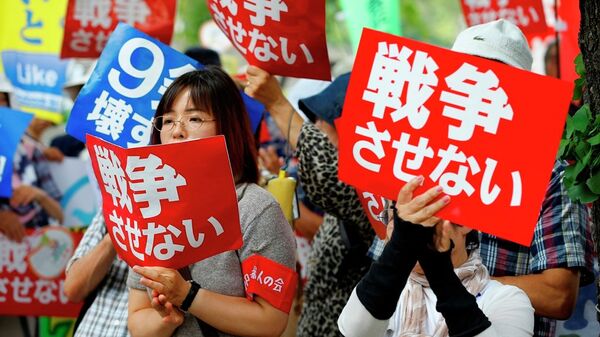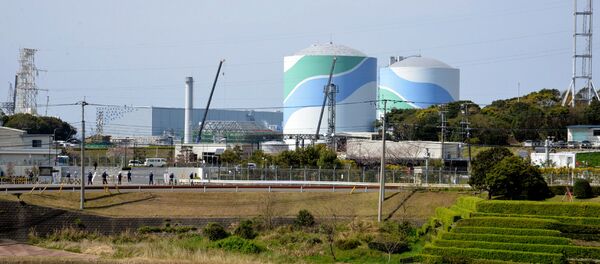As Japan remembered the Nagasaki bomb tragedy that killed 74,000 people in 1945, activists and survivors of the US bombing attack joined forces to speak out against attempts by Prime Minister Shinzo Abe to give Japan's military a more powerful role in the future.
Some scenes at last night's protest in #Tokyo against #Japan PM Abe's security policies | 3 of 3 @SEALDs_Eng pic.twitter.com/P0R0q2BYdP
— Kjeld Duits (@KjeldDuits) August 7, 2015
86-year-old bombing survivor Sumiteru Taniguchi said the new legislation was in direct contradiction to the wishes of the Nagasaki and Hiroshima bombing victims.
"We cannot accept this. The security bills which the government is trying to push through would jeopardize our long-time movement for nuclear abolition and hopes of hibakusha (atom-bomb survivors)."
"After the war, the Constitution was enacted in which Japan promised to the world that it would never wage war or take up weapons again. However, the government is about to bring Japan back to the wartime period," he said.
The mayor of Nagasaki Tomihisa Taue was among those heeding the concerns of survivors, taking the opportunity to criticize the government's actions while prime minister Abe listened on at the memorial ceremony.
"Worries and anxieties are now spreading among us that this pledge made 70 years ago and the principle for peace in the Japanese constitution may be now undermined," he said.
Constitution Controversy
The recent comments from atomic bomb survivors are the latest in a long list of criticism of the Japanese government, following the introduction of a bill to parliament that would allow Japanese troops to fight in overseas conflicts for the first time since World War Two.
People protest against Japanese PM Shinzo Abe and the gov't-backed security bills in Nagasaki, Japan, on Aug. 9. pic.twitter.com/zZsLIQA1Ky
— People's Daily,China (@PDChina) August 9, 2015
The legislation passed Japan's lower house of parliament in May amid widespread criticism and a parliamentary walkout from opposition parties.
It must now pass the country's upper house if it is to become law.
Critics say the legislation is in breach of Article 9 of Japan's constitution — established after the twin atom bomb attacks on Hiroshima and Nagasaki — which renounces war as a means of solving international disputes, amid fears Japan may be dragged into US-led conflicts if the legislation is passed.
PM Abe has sought to appease concerns by saying that Japan won't take part in any of Washington's proxy wars, but insisted that the country should play a more active role in establishing a US-Japanese security alliance in Asia, in order to combat the perceived threat of China.
The US in particular has raised concerns about what it concerns to be aggressive tactics from China in east Asia in recent times, with a number of land disputes over natural resources heightening tensions on both sides.
Japan's pacifist constitution was enacted during the American occupation of the country in 1947, after more than 200,000 people were killed in the US atom bomb attacks on the cities Hiroshima and Nagasaki.



